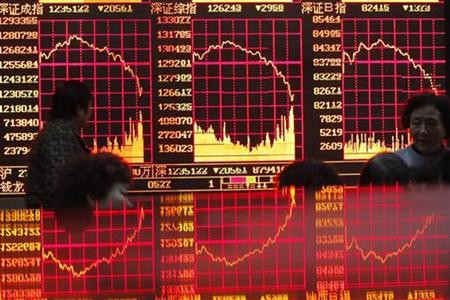A warning for emerging market investors

To state that many of the world's fastest growing economies are found in the emerging market countries of Asia and Latin America is hardly a revelation at this juncture. Additionally, it is widely known that the performance of the equity markets throughout these continents has been exceptionally strong for years. In fact, the MSCI Emerging Market index has returned better than 13% (without dividends) on an annualized basis for the last decade, while the S&P 500 and MSCI EAFE indices - proxies for the U.S. and developed international equity markets - rose at an annualized total return of just 1.4% and 3.9%, respectively.
What may not be so obvious, however, is that recently emerging market stock returns have actually lagged that of global equities and the U.S. market in particular. This is occurring at the same time investors pour cash into emerging market mutual funds with the obvious expectation that this longer-term story of outperformance will continue unabated. While the secular theme that supports investment in the emerging markets is intact; elevated economic growth, fiscal improvement, maturing infrastructure, rising per capita incomes, etc., nearer-term the equity markets of these countries could struggle.
Investor enthusiasm for these markets is already exceedingly bullish. That has driven equity valuations to levels that seem full even given the pronounced growth in earnings expected to come from companies in these markets. In the meantime, China continues its campaign to thwart rising inflation, while at the same time tempering property speculation, by raising interest rates and the reserve requirements at its banks. This could lead to a slowdown in its economy which is already being manifested in the anticipatory nature of the stock market which in China's case has been one of the worst performers among global peers.
The broad risks for emerging market equities currently are inflation and the blow back from a negative surprise coming from China. Emerging economies are being confronted with rising food costs, which for most represent a substantial portion of their calculation of inflation. This is coming at a time when there is not much slack in their economies. Consequently some have been forced to raise interest rates aggressively while others are taking a more deliberate approach. In either case, policy tightening will likely weigh on the relative performance of emerging market stocks until it appears prices begin to level or policy initiatives take hold. Meanwhile, with China accounting for approximately 40% of the world's consumption of industrial metals, and many emerging market economies reliant on commodity production for their growth, a policy blunder by Chinese officials would have economic repercussions throughout the emerging market arena.
Together these represent reasons for investors to temper their expectations for returns in emerging market stocks to run ahead of the more mature advanced countries in the coming year. In fact, it could be that U.S. equities, which retail investors in the U.S. have largely shunned, are the benefactor of a rotation in risk assets. On balance, stocks in the U.S. offer undemanding valuations, little competition from bonds and cash, an improving economic backdrop, rising profits and a favorable monetary policy. That could be the formula that makes investors reconsider the almost blind faith that emerging market equities should do well simply as long as their economies are growing quickly.
© Copyright IBTimes 2025. All rights reserved.

















